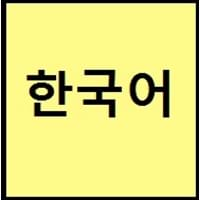Korean vs Galician
Countries
China, Jilin Province, North Korea, South Korea, Yanbian
Galicia
National Language
North Korea, South Korea
Galicia
Second Language
Not spoken in any of the countries
Not spoken in any of the countries
Speaking Continents
Asia
Europe
Minority Language
Japan, People's Republic of China, Russia, United States of America
Not spoken in any of the countries
Regulated By
The National Institute of the Korean Language
Royal Galician Academy (Real Academia Galega)
Interesting Facts
- Korean has borrowed words from English and Chinese.
- Korean has two counting systems. First, is based on Chinese characters and numbers are similar to Chinese numbers, and second counting system is from words unique to Korea.
- In Galician language, there are no compound tenses.
- The earliest document in Galician language was written in 1228 which was legal charter for a municipality of Galicia.
Similar To
Chinese and Japanese languages
Portuguese Language
Derived From
Not Available
Latin
Alphabets in
Korean-Alphabets.jpg#200
Galician-Alphabets.jpg#200
Writing Direction
Left-To-Right, Horizontal, Top-To-Bottom
Left-To-Right, Horizontal
Language Levels
Not Available
Time Taken to Learn
Not Available
Hello
안녕하세요. (annyeonghaseyo.)
Ola
Thank You
감사합니다 (gamsahabnida)
Grazas
How Are You?
어떻게 지내세요? (eotteohge jinaeseyo?)
Que tal estás?
Good Night
안녕히 주무세요 (annyeonghi jumuseyo)
Boas noites
Good Evening
안녕하세요 (annyeonghaseyo.)
Boa tarde
Good Afternoon
안녕하십니까 (annyeong hashimnikka)
Boa tarde
Good Morning
안녕히 주무셨어요 (An-yŏng-hi ju-mu-shŏ-ssŏ-yo)
Bos días
Please
하십시오 (hasibsio)
Por favor
Sorry
죄송합니다 (joesonghabnida)
Síntoo!
I Love You
당신을 사랑합니다 (dangsin-eul salanghabnida)
Ámote
Excuse Me
실례합니다 (sillyehabnida)
Perdoe!
Dialect 1
Jeju
Eastern Galician
Where They Speak
South Korea
East Galicia
How Many People Speak
Not Available
Dialect 2
Gyeongsang
Central Galician
Where They Speak
South Korea
Central Galicia
How Many People Speak
Not Available
Dialect 3
Hamgyŏng
Western Galician
Where They Speak
China, North Korea
West Galicia
Speaking Population
Not Available
Native Name
한국어 (조선말)
Galego
Alternative Names
Hanguk Mal, Hanguk Uh
Galego, Gallego
French Name
coréen
galicien
German Name
Koreanisch
Galicisch
Pronunciation
Not Available
[ɡaˈleɣo]
Ethnicity
Koreans
Not Available
Origin
Before 1st century
c. 1175
Language Family
Koreanic Family
Indo-European Family
Subgroup
Not Available
Not Available
Branch
Not Available
Not Available
Early Forms
Old Korean, Middle Korean and Korean
Medieval Galician
Standard Forms
Pluricentric Standard Korean, South Korean standard and North Korean standard
Galician
Language Position
Not Available
Signed Forms
Korean Sign Language
Not Available
Scope
Individual
Individual
ISO 639 6
Not Available
Not Available
Glottocode
kore1280
gali1258
Linguasphere
45-AAA
51-AAA-ab
Language Type
Living
Living
Language Linguistic Typology
Subject-Object-Verb
Not Available
Language Morphological Typology
Agglutinative
Not Available
Korean and Galician Language History
Comparison of Korean vs Galician language history gives us differences between origin of Korean and Galician language. History of Korean language states that this language originated in Before 1st century whereas history of Galician language states that this language originated in c. 1175. Family of the language also forms a part of history of that language. More on language families of these languages can be found out on Korean and Galician Language History.
Korean and Galician Greetings
People around the world use different languages to interact with each other. Even if we cannot communicate fluently in any language, it will always be beneficial to know about some of the common greetings or phrases from that language. This is where Korean and Galician greetings helps you to understand basic phrases in Korean and Galician language. Korean word for "Hello" is 안녕하세요. (annyeonghaseyo.) or Galician word for "Thank You" is Grazas. Find more of such common Korean Greetings and Galician Greetings. These greetings will help you to be more confident when conversing with natives that speak these languages.
Korean vs Galician Difficulty
The Korean vs Galician difficulty level basically depends on the number of Korean Alphabets and Galician Alphabets. Also the number of vowels and consonants in the language plays an important role in deciding the difficulty level of that language. The important points to be considered when we compare Korean and Galician are the origin, speaking countries, language family, different greetings, speaking population of these languages. Want to know in Korean and Galician, which language is harder to learn? Time required to learn Korean is 88 weeks while to learn Galician time required is Not Available.





